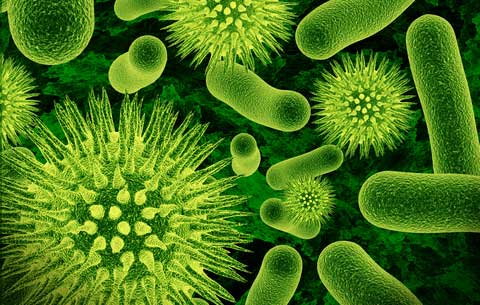Human Gut Bacteria Different in Japanese vs. North Americans

Get the world’s most fascinating discoveries delivered straight to your inbox.
You are now subscribed
Your newsletter sign-up was successful
Want to add more newsletters?

Delivered Daily
Daily Newsletter
Sign up for the latest discoveries, groundbreaking research and fascinating breakthroughs that impact you and the wider world direct to your inbox.

Once a week
Life's Little Mysteries
Feed your curiosity with an exclusive mystery every week, solved with science and delivered direct to your inbox before it's seen anywhere else.

Once a week
How It Works
Sign up to our free science & technology newsletter for your weekly fix of fascinating articles, quick quizzes, amazing images, and more

Delivered daily
Space.com Newsletter
Breaking space news, the latest updates on rocket launches, skywatching events and more!

Once a month
Watch This Space
Sign up to our monthly entertainment newsletter to keep up with all our coverage of the latest sci-fi and space movies, tv shows, games and books.

Once a week
Night Sky This Week
Discover this week's must-see night sky events, moon phases, and stunning astrophotos. Sign up for our skywatching newsletter and explore the universe with us!
Join the club
Get full access to premium articles, exclusive features and a growing list of member rewards.
Bacteria in the guts of some Japanese people are specialized for chowing down on seaweed – part of the daily diet in Japan – a new study finds. In contrast, the gut bacteria of North Americans appear to lack this special ability, at least in the individuals that have been studied.
The Japanese gut bacteria owe their unique ability to a special enzyme that helps degrade specific carbohydrates present in certain edible algae, such as nori, the seaweed from red algae used to wrap sushi. In fact, the sneaky bacteria likely stole this enzyme from marine bacteria that live off of red algae, the researchers say.
The gut bacteria with this enzyme can digest carbs that their fellow microbe neighbors can't, which gives them an advantage in an environment (i.e. the gut) where competition for nutrients is strong, said study author Mirjam Czjzek, a researcher at the Station Biologique de Roscoff in France, referring to competition between various gut bacteria. And some of this nutritional boon carries over to the people whose intestinal tract the microbes call home.
"The breakdown is never 100 percent for the one who is breaking down," Czjzek told LiveScience. "And certainly the cut-down pieces, the sugars that are released, are also an energy benefit for the person who has this type of bacteria that is able to degrade them," she said.
The results will be published April 8 in the journal Nature.
A happenstance finding
Czjzek and her colleagues didn't have their sights on the human gut when they began this research. They were interested in the bacteria that live off of marine organisms and the ways in which they get energy.
Get the world’s most fascinating discoveries delivered straight to your inbox.
Specifically, they were trying to find new enzymes. (Enzymes are molecules that speed up chemical reactions inside cells. For example, bacteria and humans can't digest long chains of carbohydrates without the proper enzymes.)
They identified a new group of enzymes called porphyranases from the Zobellia galactanivorans, bacteria that live on red algae. These enzymes help break down specific fibers present in the red algae.
But the research team was curious where else they might find this enzyme. So they searched Internet databases looking for a genetic match. They saw this enzyme was present in other organisms, but all their matches came from bacteria that live in the sea – except for one. One match was from a bacteria species that lives in the human gut, isolated from a Japanese volunteer.
And that bacteria, called Bacteroides plebeius, had only been found in Japanese individuals.
Data from two previous studies confirmed the scientists' suspicions about the gut bacteria. In one study, five out of the 13 Japanese subjects had gut bacteria containing porphyranases, while none of the 18 Americans in the second study had gut bacteria with these particular enzymes.
However, since the study only analyzed a small group of Americans, more research is needed to learn to what degree these enzymes are present in Americans.
Stealing genes
So how did enzymes from sea-living bacteria end up in the guts of humans? The most likely route is through a process called "horizontal gene transfer," or the exchange of genes between bacteria that aren't related to each other. The human gut bacteria likely acquired, or "stole," the gene for porphyranase from marine bacteria present on the algae eaten by humans.
The fact that nori used for sushi isn't traditionally roasted makes it likely that live marine bacteria ended up in human guts to exchange their genes, the researchers say. Since the genes in the human gut bacteria are so similar to those in the marine bacteria, the gene exchange likely happened relatively recent in human evolution, they say.
The researchers don't plan follow-up studies involving human gut bacteria, but instead will go back to looking for new enzyme activities.
"What we can see is that if we find these new activities, they tell a story that we did not even know about," Czjzek said.
"And perhaps we [have] pinpointed a sort of marker molecule that might be exploited by other groups that are interested in evolution and changes of human gut," she said

Rachael is a Live Science contributor, and was a former channel editor and senior writer for Live Science between 2010 and 2022. She has a master's degree in journalism from New York University's Science, Health and Environmental Reporting Program. She also holds a B.S. in molecular biology and an M.S. in biology from the University of California, San Diego. Her work has appeared in Scienceline, The Washington Post and Scientific American.
 Live Science Plus
Live Science Plus










